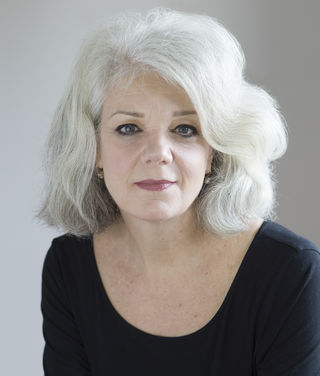Deception
How I Learned to Stop Lying, by Marcia Butler
Author of new memoir tells the truth about lying to her therapist.
Posted February 21, 2017
Contributed by Marcia Butler, author of The Skin Above my Knee: A Memoir

I read somewhere that people lie about twice a day and more often when they are on the phone. Lies are tricky little devils. They come in so many different colors and disguises. There’s the proverbial white lie, where you supposedly spare someone’s feelings. And the idiotic lie, such as lowering your golf score just because you can. You are the keeper of the scorecard, after all, so what’s the harm? But what about lying to your therapist?
I’d like to believe that my commitment to face-to-face therapy and weekly sessions might have pushed the truth out of me; no phone, no husband, no job to distract me from what I was trying to unearth and uproot about myself. In fact, over many years I’ve banked copious hours sitting opposite various shrinks, composing a placid smile on my face just to insist, “everything’s fine, really.” Or sob all session long with, “nothing’s wrong, really.” Either way, I spent many years lying and paying a lot of money to do it. I began seeing therapists in the mid-70’s when I was just 19. It’s only recently that I’ve learned that one can tell the truth only when that particular road opens up.
My first big lie began like a gunshot that rippled through my gut, but which I could not hear. I was studying the oboe in college and shortly into my second year something strange began to happen: I could not hold a steady tone while playing my instrument. The oscillation became so bad my oboe teacher convinced the school to pay for me to see a biofeedback specialist (popular back then) to discover the root of the problem. I liked the therapist’s eyes, kind and a little weary. So, I let him strap two sets of wires on me. One set indicated surface muscle tension — benign enough. The second was meant to identify a deeper underlying emotional discomfort — deadly.
I remember the exact bookend questions:
Q: What did you have for lunch?
A: A salad.
The needle remained dormant.
Q: How are things with your father?
A: Fine.
The needle flew off the meter and disappeared.
This lie was guileless and somewhat unconscious. Nonplussed by the silly needle I struggled to explain to the therapist what I could not mentally acknowledge, though apparently, my body was fully aware and on high alert. The truth about my father was buried deep inside a childhood of desperate collusion. Looking back, I was closed off — certainly masked — and much too young to articulate what I could barely admit to myself.
The therapist let it go, thank goodness. The biofeedback techniques worked quickly on the obvious belly problem and within a month I was back to playing the oboe well. That first lie, though, was a springboard for countless cover-ups, deceptions, and side-stepping that I used to fool many therapists throughout the next 40 years.
Something told me to continue talk therapy with that older, wizened man for another year during college. I’d gotten myself a boyfriend who had a serious drinking problem and the shrink adequately shepherded me through those land mines. What I wasn’t telling him (and everyone else in my life) was that my boyfriend was spending several months in jail, and I was visiting him at Rikers Island every Saturday. My cover story was that he was in Europe with his family on an extended holiday. I kept the shrink up to date on all the cities he’d visited in Italy. Meanwhile, the guy was in the slammer just across the East river. This man was the first on a long list of bad boys I’d trot through my life, and I felt a crushing shame that I was actually involved with a man in jail. But complaining about his addiction to alcohol was all I could muster.
The summer after finishing college, I engaged with a therapist at a clinic that took payment on a sliding scale. I remember presenting myself to her as simply needing guidance on navigating the ins and outs of starting my career as a freelance oboist in New York City. I was insecure, felt deficient and desired some bolstering. When I came in one week with the palms of my hands badly damaged and crusted with scabs, I explained that while walking in Central Park I’d simply tripped over an exposed tree root. Actually, I’d tried to kill myself by attempting to jump in front of a car, also known as a “failed dart out” in police jargon. I even embellished the foot fault, noting the time of day (noon) and the nice man walking his dog (golden retriever) who came to my assistance, offering his handkerchief to soak up the blood sluicing down my arms as I held my hands up in surrender. What a nice story — all lies. In retrospect, the idea of confessing to this suicide attempt, not to mention the suicidal ideation that had dogged me for most of my life, was not anywhere near possible. I watched myself talk, as if I were outside my body, and easily directed the therapist away from the scabs on my hands.
Enter my first husband whom I married in my early 20’s. He was about 25 years my senior. A father figure? Of course. But not in any way I was aware of back then. If I had possessed one drop of introspection I’d have easily seen that both my father and this husband wanted to control me and everything I held dear, including my body. My husband insisted I starve my 5’8” frame down to less than 105 pounds — almost an enforced anorexia. I was a dutiful daughter, I mean wife, and with the help of speed (better known as diet pills) and cocaine (considered non-addictive in those days), I managed to drop the weight in no time. My new therapist noticed this alarming weight loss and suggested I spend several minutes screaming while punching a few pillows (a popular release technique during the disco years), to help me fess up to my assumed eating disorder. It was easier to tell her I’d been suffering from a chronic stomach amoeba than disclose the endless hunger I’d been ordered to endure just to keep the peace with my husband.
The lies, insignificant or catastrophic, continued throughout my adult life. All the while I’d forged a successful career as a professional musician. Yet I continued pushing my truths into the furthest recesses of my mind, which enabled me to compartmentalize and make room for my career. I held hard to the miracle of music — the only truthful sound I could tolerate for many years.
When I reached my mid 50’s I began writing essays about my life, which eventually became a memoir. At first, I didn’t even question this act; I just wrote. I trusted that there was a story inside me, just like music, that was ready to be told. This process of inspecting my sad motivations and insane decisions stared back at me from the page. And every day, little by little, I circled around the “big subject” until I had it cornered, like a feral animal, in a small room. Then, I finally pressed the blackest of ink onto pure white paper and finally wrote the worst of words — the truth about my father who’d sexually abused me.
Then I really needed a shrink — a total pro. This new doctor listened, stone-faced and rapt. He was much older, never laughed, and tacked strictly to the business of my life. Somehow his office felt like a safe holding vessel where I could finally let my taught rope slacken a bit. I couldn’t look him in the eyes, but I did begin to talk. His memory became the second repository for my tawdry inventory and he held it all close to his heart.
This act of telling the truth felt like attempting a swan dive off a Hawaiian cliff, but with no water below to catch my plunge. I was terrified and before too long buyer’s remorse set in. It was one thing to write essays; it was very different to actually say the words for someone to hear and then remember. I realized I still couldn’t tolerate even one person knowing what had happened to me — even my therapist. The shame was crippling.
I requested Klonopin — about 100 pills would do — as I’d heard it was an effective sleep aid. He wrote out the scrip easily; I was telling him the truth so there was no reason for him to be suspicious. But I was not finished lying and sleeping was not one of my problems. My plan was to stockpile the pills and kill myself. After a few evenings of Googling appropriate dosage, I read that Bernie Madoff and his wife had tried to kill themselves with Klonopin and simply woke up a day later feeling well-rested.
Chagrined and still alive, I gave in. Digging deeper with my therapist I finally understood that the lies over many years had been my friends. They’d actually kept me alive. The truth about myself and my father needed to remain a fact that was mine alone until the exact minute I could release it. Write it. Speak it. And not one second before.
I’m so sorry, all you well-meaning therapists. All you good people who tried to figure out why a girl-oboist was sad and had a shaky belly; why she went back to the drunk for round two; why she arrived one day all bloody and scraped up; why she was much too skinny and began to disappear. And why she explained she just wanted a good night sleep when what she really wanted was the “big sleep." All of you who gently prodded and kindly poked at me, and those who cared a lot and maybe even loved me just a wee bit — it wasn’t your fault. It wasn’t even my fault. Because any hard truth cannot be understood and then told until such time when the words are, finally, well-formed in the mind and the heart. What is true rarely feels wonderful. There’s no picture book cathartic moment where you feel released and can finally “get on with your life." But this essential honesty is the only way I was able to look in the mirror and recognize myself: a woman who, finally, didn’t lie.
MARCIA BUTLER was a professional oboist for 25 years, until her retirement from music in 2008. During her musical career, she performed as a principal oboist and soloist on the most renowned New York and international stages, and with many high-profile musicians and orchestras. In addition to her debut book, The Skin Above My Knee: A Memoir, her first piece of flash fiction will be included in an anthology of 100 authors from Centum Press. She lives in New York City, where she is working on her first novel.




